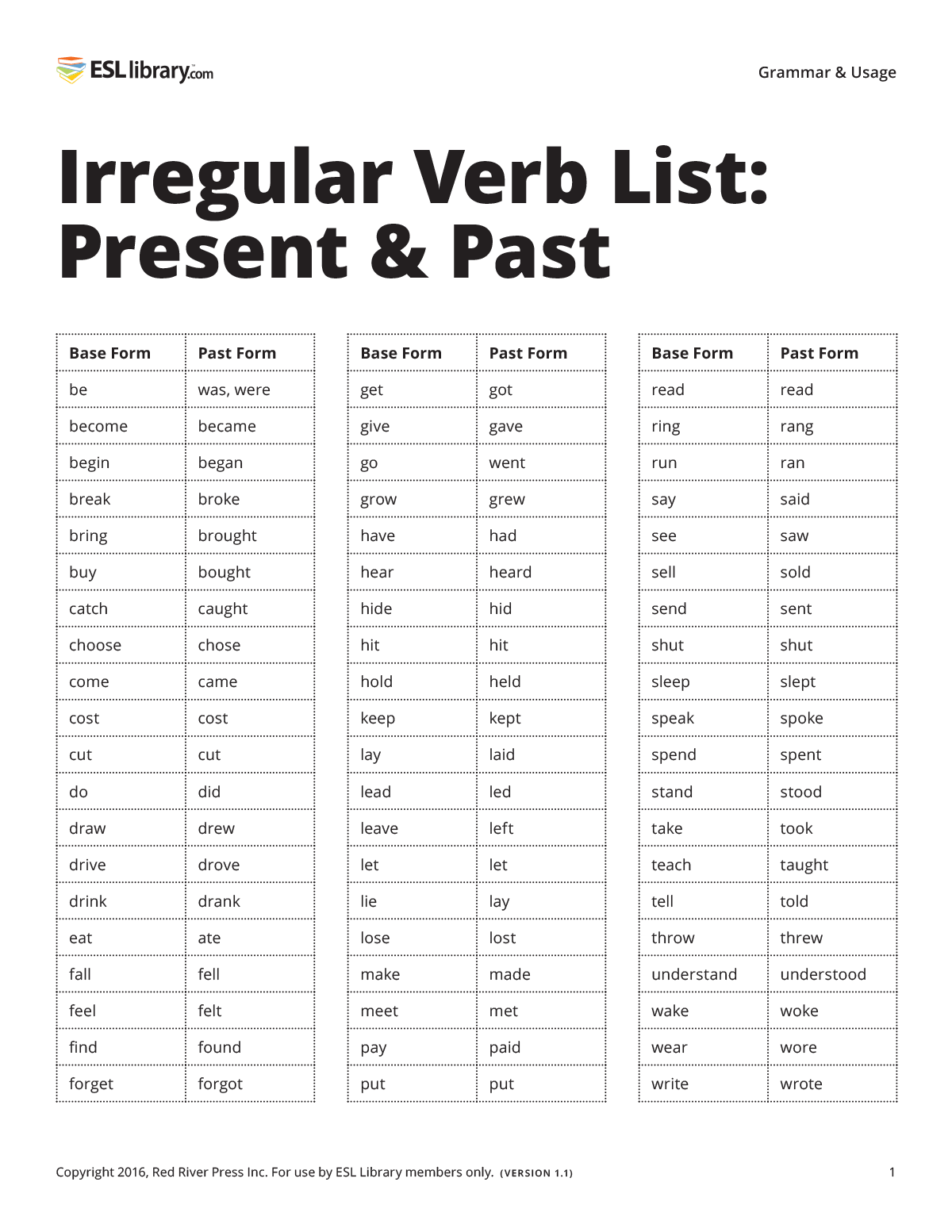

First of all, there is a difference between British and American English. Like any other modern language, English is constantly changing and transforming. Why do some irregular verbs have more than one past form? Should we learn both? And misunderstand has the same forms as understand: misunderstand - misunderstood - misunderstood. For example, overhear is the same as hear: overhear - overheard - overheard. We left out rarely used words you will hardly hear today like shoe - shod - shod.īesides, if we add a-, be-, for-, in-, inter-, mis-, off-, out-, over-, pre-, re-, un-, under-, up-, with- to the infinitive of an irregular verb, its past forms will stay the same. CC BY-SA 3.0 Creative Commons Attribution-Share Alike 3.Are these really all existing irregular verbs? This licensing tag was added to this file as part of the GFDL licensing update.

This file is licensed under the Creative Commons Attribution-Share Alike 3.0 Unported license. GFDL GNU Free Documentation License true true A copy of the license is included in the section entitled GNU Free Documentation License.

Permission is granted to copy, distribute and/or modify this document under the terms of the GNU Free Documentation License, Version 1.2 or any later version published by the Free Software Foundation with no Invariant Sections, no Front-Cover Texts, and no Back-Cover Texts. Irregular verbs, with their French translations and pronunciation given using IPA.


 0 kommentar(er)
0 kommentar(er)
